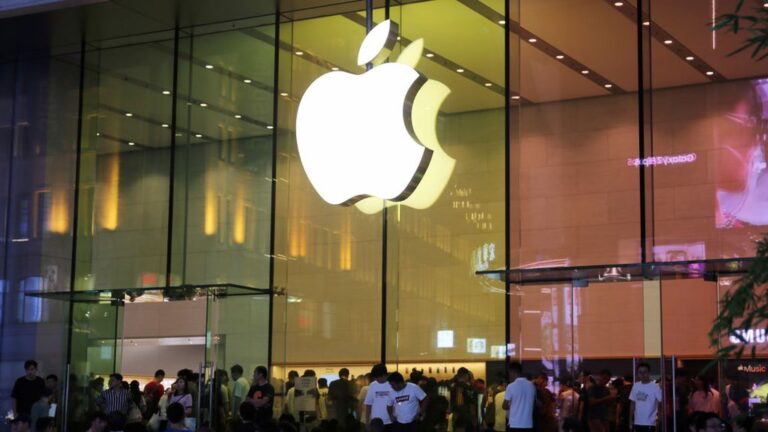To grasp the significance of the US government’s recent lawsuit against Apple, one must first acknowledge the unique fervor of the company’s fanbase.
Apple occupies a distinctive space in the realm of technology brands.
Having attended numerous Apple events, both virtually and in person, one cannot help but notice the enthusiastic applause and cheers from the audience each time a new feature is unveiled, regardless of its magnitude.
During product launches, Apple employees line up outside stores, applauding the first buyers who eagerly await the latest gadgets, some of whom have camped outside for hours and spent significant sums (who else could command $3,500/£3,499 for a VR headset?).
Such is the devotion to the brand that some individuals even adorn themselves with tattoos of Apple’s iconic logo.
In his 2006 book “The Cult of Mac,” Leander Kahney likened Apple to a peculiar drug that engenders insatiable cravings.
This “strange drug” or, in Apple’s own words, “magical experience,” is now facing scrutiny.
Apple’s approach has proven wildly successful from a business perspective. As of now, the company boasts a staggering worth of $2.6 trillion.
According to analysis firm CCS Insight, iPhones accounted for a remarkable 72% of smartphone purchases in North America during the final quarter of 2023. Samsung trailed with 25%, leaving a mere 3% for all other competitors in the handset market.
Apple’s emphasis on privacy and security has been a major selling point. However, questions have arisen regarding whether this comes at the expense of fair competition.
The US Department of Justice has launched a comprehensive lawsuit against tech giant Apple, alleging the company has established an unlawful monopoly in the smartphone market.
Among the allegations, Apple has been accused of routinely obstructing web trackers, a practice that not only frustrates web users but also serves as a significant revenue source for other digital enterprises.
Additionally, Apple’s “walled garden” approach has come under scrutiny. This entails all Apple products seamlessly integrating with each other, and each app, payment method, and system update undergoing scrutiny and approval by the company. Essentially, it operates as a closed ecosystem, prioritizing security.
While developers express frustration over the necessity to adhere to Apple’s stringent regulations and pay for access, the tech giant contends that in return, developers gain entry to a vast marketplace teeming with potential customers.



























